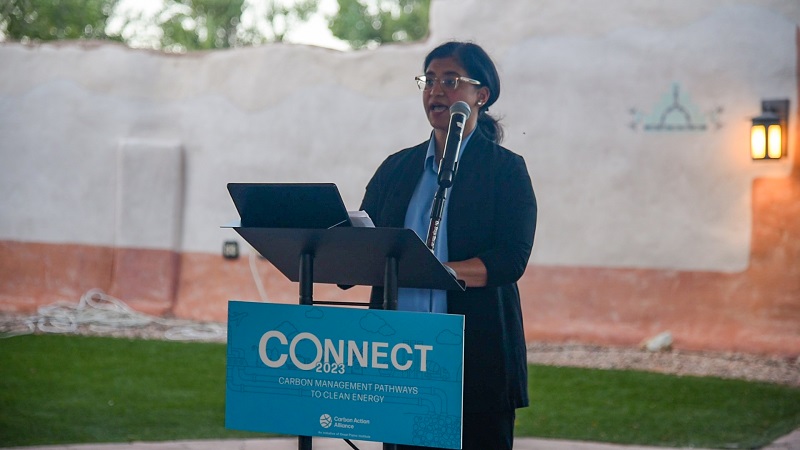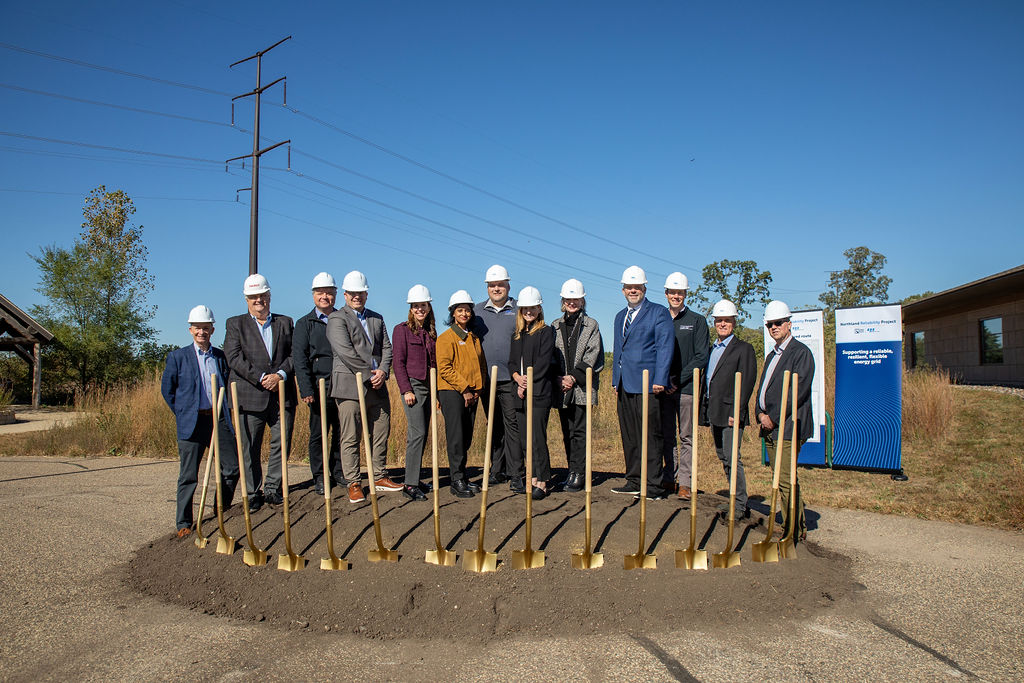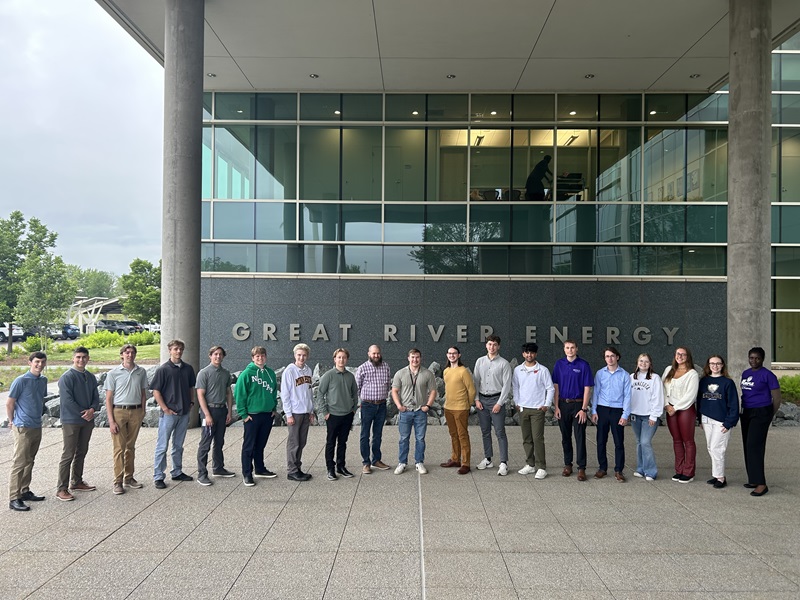Great River Energy’s Vice President and Chief Transmission Officer Priti Patel kicked off the CO2NNECT 2023 Conference on Sunday, Oct. 1, in Santa Ana Pueblo, New Mexico, with a message about the importance of community engagement in the evolution of the electric system.
Patel delivered her remarks to approximately 125 attendees, including experts in carbon management technology and deployment, community leaders, state and local policymakers, and energy industry representatives.
The conference, which was organized by the Great Plains Institute’s (GPI) Carbon Action Alliance, provided an opportunity to connect individuals and organizations with shared interests in carbon management. Attendees were able to learn from experts in the carbon management field, hear about the latest research and reports, and participate in in-depth discussions about carbon management and related topics.
Patel, who is the GPI’s board chair, set the tone for the event which focused on the importance of community engagement.
“Great Plains Institute believes this era of clean energy implementation will be defined by how successful we are at engaging people early on the options in front of them, the implications of those options, and how different solutions contribute to their goals,” Patel said. “The scale of deployment of not just carbon management technology, but solar and wind generation, transmission, and so much more, that will be required to meet state and national climate goals will require unforeseen level of public engagement and community participation.”
Patel told the crowd community engagement is particularly top of mind right now for Great River Energy as the Upper Midwest is in the middle of another major electric transmission grid expansion. Great River Energy is building a 180-mile, 345-kilovolt transmission line from northern Minnesota to central Minnesota with Minnesota Power. Known as the Northland Reliability Project, the project could cost as much as $1.3 billion.
“Even though 86% of the project route we just proposed to the Minnesota Public Utilities Commission follows existing transmission corridors, we did not take our outreach process lightly.”
— Priti Patel, Great River Energy’s vice president and chief transmission officer
She explained that the utilities spent approximately one year engaging with stakeholders before submitting their certificate of need and route permit application. Great River Energy and Minnesota Power held nearly 30 public workshops and open houses, meeting with tribes, local officials, townships and environmental groups to share information about the project and gather input on the route.
GPI is a nonpartisan, nonprofit organization that aims to accelerate the transition to net-zero carbon emissions for the benefit of people, the economy and the environment. The Carbon Action Alliance is a growing network of stakeholders that provides education and advocacy about the suite of carbon management and industrial decarbonization technologies needed to be deployed at scale to reach net-zero emissions by 2050.

 " data-object-fit="cover">
" data-object-fit="cover">
 " data-object-fit="cover">
" data-object-fit="cover">